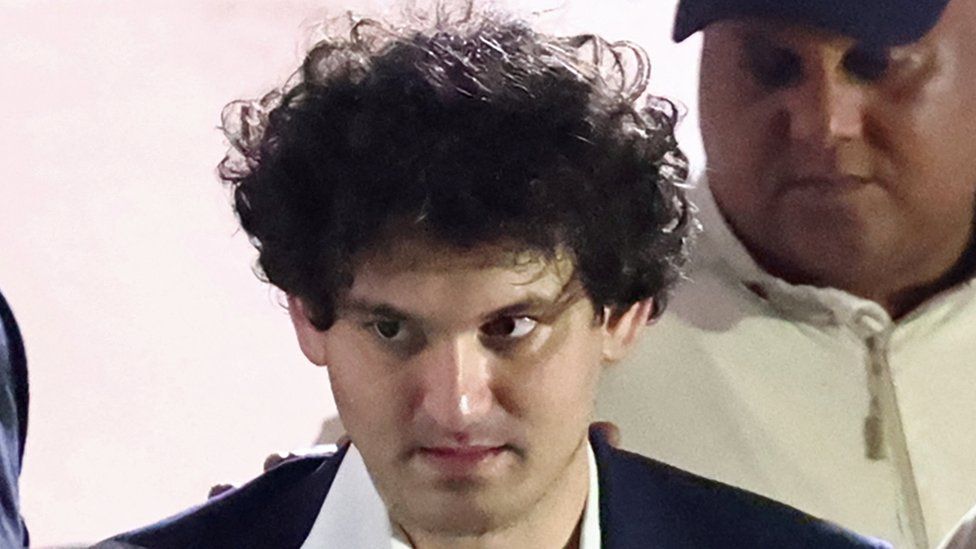Cryptocurrency
Cryptocurrency OneCoin Boss Pleads Guilty to Fraud, Money Laundering

OneCoin’s co-founder Karl Greenwood pleaded guilty to US fraud and money laundering charges for selling a bogus cryptocurrency alongside one of the US’ most wanted fugitives, a woman known as the ‘Cryptoqueen.’
Karl Greenwood, 45, was arrested in Thailand and extradited to the United States in 2018 for his role in selling the alleged cryptocurrency OneCoin, which federal prosecutors in Manhattan describe as a pyramid scheme that defrauded investors out of $4 billion. Since his arrest, he has been detained.
The plea comes as prosecutors in the Southern District of New York (SDNY) intensify their pursuit of financial crimes involving digital assets. Prosecutors unveiled an indictment against Sam Bankman-Fried, the founder of the FTX crypto exchange, on charges of stealing billions of dollars in customer deposits on Tuesday.
“This guilty plea by the co-founder of OneCoin caps a week at SDNY that sends a clear message that we are coming after all those who seek to exploit the cryptocurrency ecosystem through fraud,” said Damian Williams, Manhattan’s top federal prosecutor.
Prosecutors claim Greenwood co-founded OneCoin in Sofia, Bulgaria, in 2014 with Ruja Ignatova, a German citizen known as the ‘Cryptoqueen.’ She was added to the FBI’s top ten most-wanted list in June, and prosecutors said on Friday that she is still at large.
Greenwood’s attorney declined to comment. He is scheduled to be sentenced for the three counts to which he pleaded guilty on April 5.
Bankman-Fried acknowledged risk management failures at FTX but claimed he is not criminally liable. He is currently detained in The Bahamas, where FTX is based and is fighting an extradition request from the United States.
Cryptocurrency Fraud Sam Bankman-Fried denied bail.
A judge in the Bahamas has denied bail to Sam Bankman-Fried, the founder of the failed cryptocurrency exchange FTX.
On Tuesday, Mr. Bankman-Fried was charged with “one of the biggest financial frauds in US history” by US authorities.
The former FX chief built a “house of cards on a foundation of deception,” according to Securities and Exchange Commission (SEC) Chair Gary Gensler.
Mr. Bankman-Fried has stated that he will fight extradition to the United States.
Bahamas Chief Magistrate JoyAnn Ferguson-Pratt denied his bail petition, citing a “great” risk of flight, and ordered that he be held in a correctional facility until February 8.
FTX declared bankruptcy in the United States last month, rendering many users unable to withdraw their funds. According to a court filing, FTX owed nearly $3.1 billion (£2.5 billion) to its 50 largest creditors.
Among the most serious allegations against Mr. Bankman-Fried is that he used billions of dollars in customer funds to prop up Alameda, his investment trading firm.
It is unclear how much money people who have funds in the exchange will receive after the bankruptcy proceedings, though many experts have warned that it may be a small fraction of what they deposited.
In the United States, Mr. Bankman-Fried is facing eight criminal charges, including wire fraud, money laundering, and conspiracy to defraud. He also faces civil charges for defrauding investors who put more than $1 billion into the company.
Officials have also charged him with breaking campaign finance laws.
Damian Williams, the US Attorney for the Southern District of New York, described Mr. Bankman-alleged Fried’s fraud as “among the largest in US history” during a press conference on Tuesday.
Mr. Bankman-Fried was accused of defrauding lenders, investors, and customers and using “tens of millions” in ill-gotten gains to make illegal campaign contributions to Democrats and Republicans.
“All of this dirty money was used to serve Bankman-desire Fried’s to buy bipartisan influence and influence public policy in Washington,” Mr. Williams said.
Previously, the crypto tycoon admitted to making mistakes but denied intent to defraud his customers.
Mr. Bankman-Fried also denied claims that he knew FTX’s affiliated trading company, Alameda Research, was using FTX customer funds.
He was once considered a younger version of the legendary US investor Warren Buffett. As recently as late October, he had a net worth of more than $15 billion (£12.1 billion).
Caption for media,
Sam Bankman-Fried denies knowing FTX customer funds were used for risky financial bets.
Meanwhile, the firm’s new CEO, John Ray, told a US congressional committee that FTX’s demise appeared to result from a small group of “grossly inexperienced, non-sophisticated individuals” controlling the company.
He saw “an utter lack of record-keeping – no internal controls whatsoever,” he said.
Customers could use the FTX exchange to exchange traditional currency for cryptocurrencies such as Bitcoin.
Cryptocurrencies are not traditional currencies; they are stored online and function more like investment vehicles or securities, with high volatility.
Because of their anonymity, they have been favored for criminal activities such as drug dealing and ransomware attacks, but supporters argue that they have enormous innovation potential – and independence from governments.







































